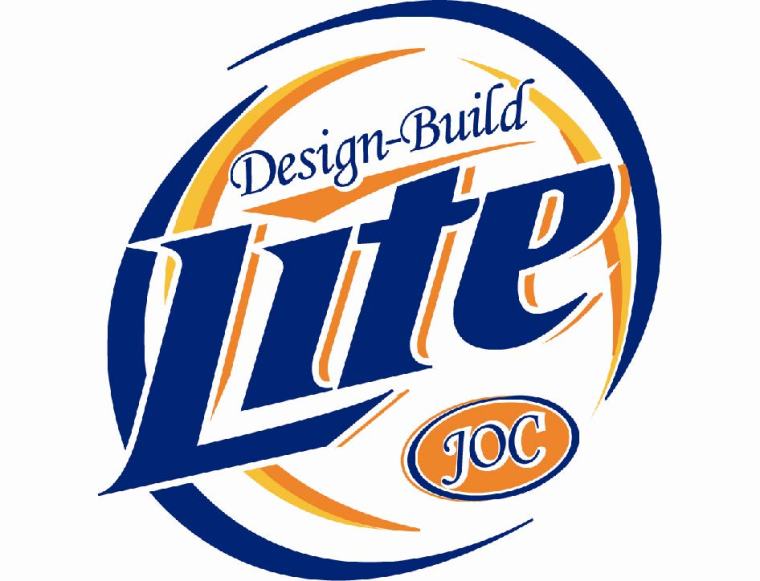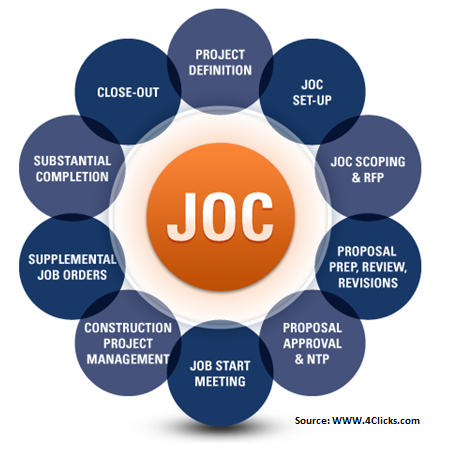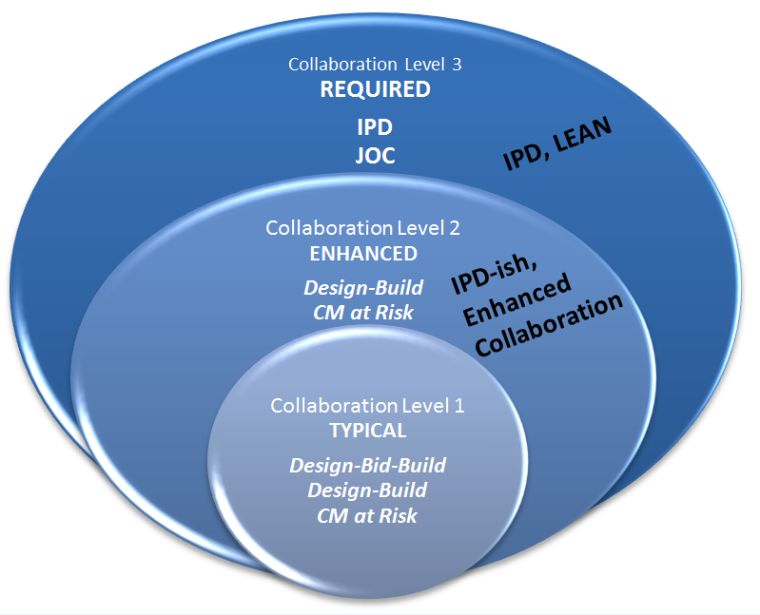
What is an IDIQ / Indefinite Delivery Indefinite Quantity construction delivery method?
• Focused on smaller projects (up to low millions)
• Allows more efficient and higher quality construction for owners of large facility infrastructure
• Multi-year contract—ability to develop long- term facilities partners
• Well-suited to facilities with security concerns and/or ongoing operations—ensuring that contractors are pre-approved to begin work
There are multiple types of construction IDIQs
•Time and Materials – for simpler/smaller tasks
•MATOC (Multiple Award Task Order Contract) or MACC (Multiple Award Construction Contract) – for larger construction projects
•Job Order Contracting (JOC) – more the numerous renovation, repair, sustainability, and minor new construction projects, averaging $50,000-$100,000+ up to low millions. A form of Integrated Project Delivery, IPD, and also referred to as “Design-Build Lite”.
T and M Basics
•Pre-agreed labor rates and/or materials markup
•Suitable for the smallest projects
•Extension of/option to in-house crews
T and M Advantages
•Most immediately responsive
•Ideal for emergency work
•Flexible for projects with unknown scope
•Best suited for the smallest projects
•Extension of staff
T and M Disadvantages
•Little price control or up-front commitment
•No ability to subcontract—limited to trades called out in contract
•Pricing structure does not incentivize efficiency
MATOC/MACC Basics
•Prequalified shortlist of contractors to bid on multiple projects
•Phase 1 selection is always qualifications-based (can have price component in the form of a seed project)
•Per-project competition is usually price-based
MATOC/MACC Advantages
•Simple to implement
•Similar to DBB
•No special skill set required
•Assurance of quality contractors
•Easy to ensure competitive pricing
•Can be used for larger projects
•Streamlines post-bidding award, security clearances, etc.
MATOC/MACC Disadvantages
•Little room for innovation or collaborative process
•Must have full bid documents to ensure prequalified contractors are bidding “apples to apples”
•Spreads volume among many contractors, reducing operational efficiency
•One contractor can dominate, leaving lack of competitive pricing
•Contractors are higher quality, but DBB process and mentality remains
Job Order Contracting Basics
•Unit-price based
•Coefficient (factor, multiplier) applied to Unit Price Book
•Single-source
•Individual projects are scoped and proposed based on unit prices, which converts to a lump- sum delivery order before proceeding
•Performance-based
Job Order Contracting Advantages
•Operational efficiencies from having one “go-to” contractor
•Extension of your staff
•Collaborative process
•Early contractor involvement, Design-Build, design to budget
•Standardized pricing based on competitive process
•Savings on “soft costs”
•Expedited delivery of projects
•Maximizes opportunity for M/DBE subcontracting
JOC Disadvantages
•Very different approach/process— requires partnering mindset of owner and contractor
•Requires staff training in unit price book estimating and evaluation of line item estimates
•No multiple quotes for comparison
•Cost efficiencies diminish above a certain threshold

 Via 4Clicks.com – Premier cost estimating and efficient project delivery software for JOC, SABER, IDIQ, SATOC, MATOC, MACC, POCA, BOA, with the support of Lisacooleyassociates.com
Via 4Clicks.com – Premier cost estimating and efficient project delivery software for JOC, SABER, IDIQ, SATOC, MATOC, MACC, POCA, BOA, with the support of Lisacooleyassociates.com

